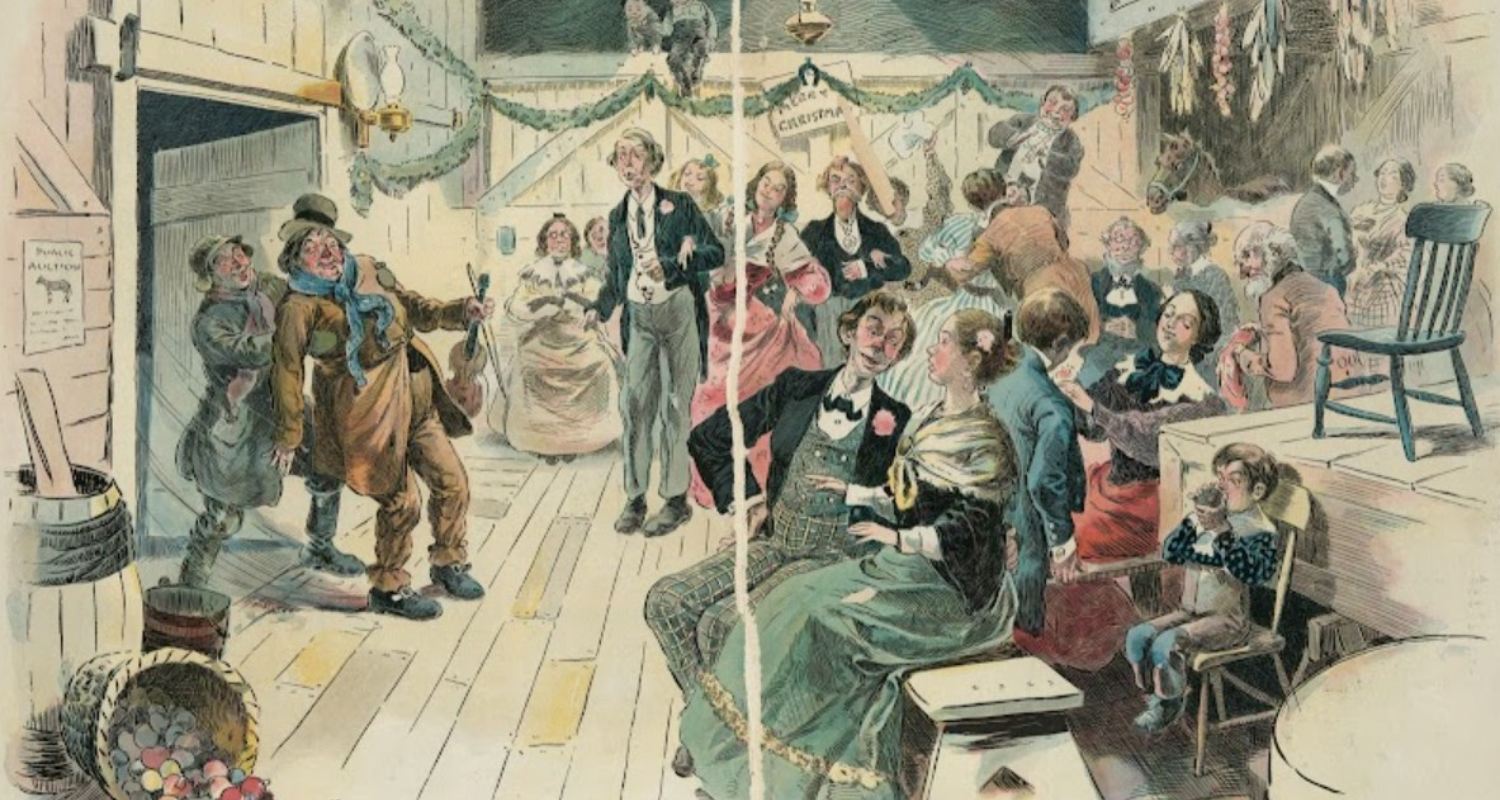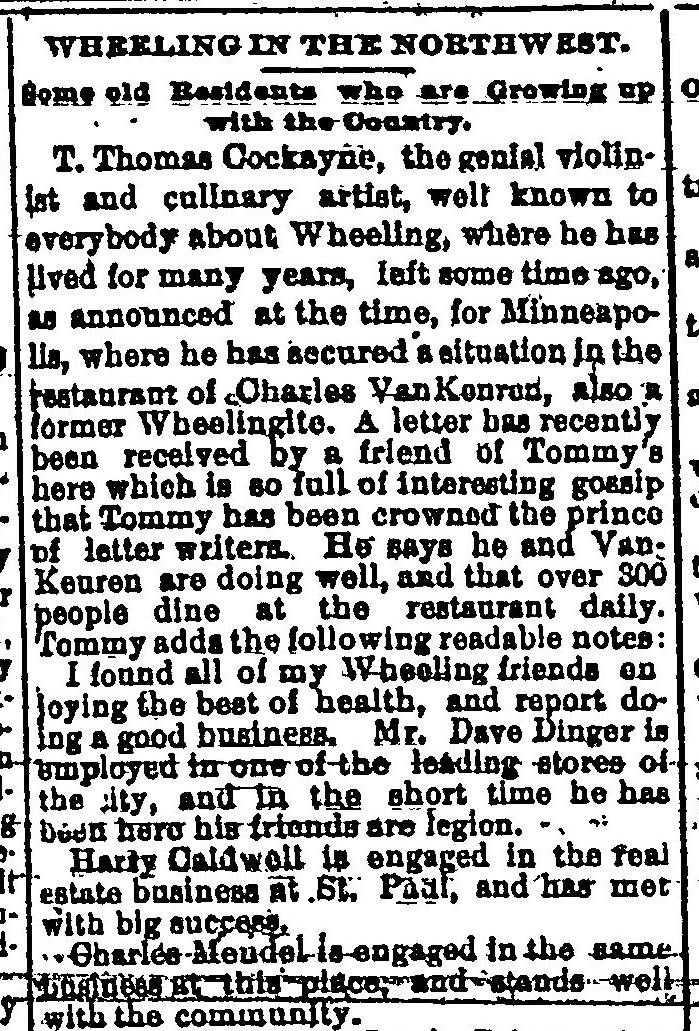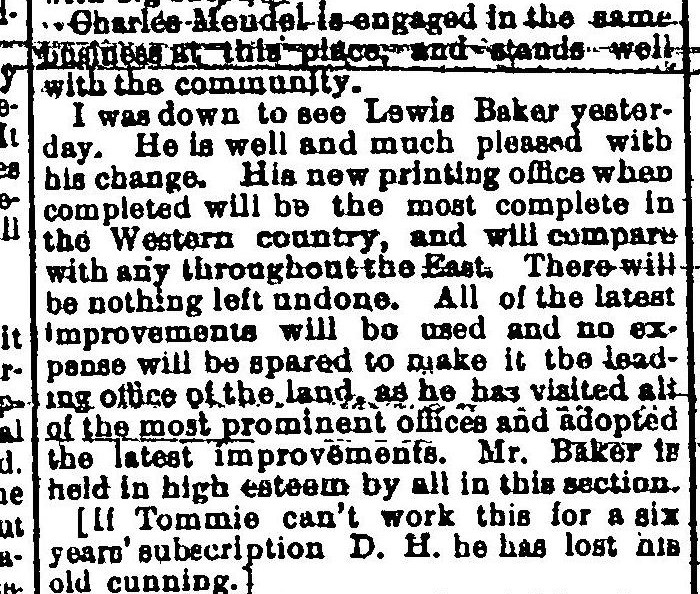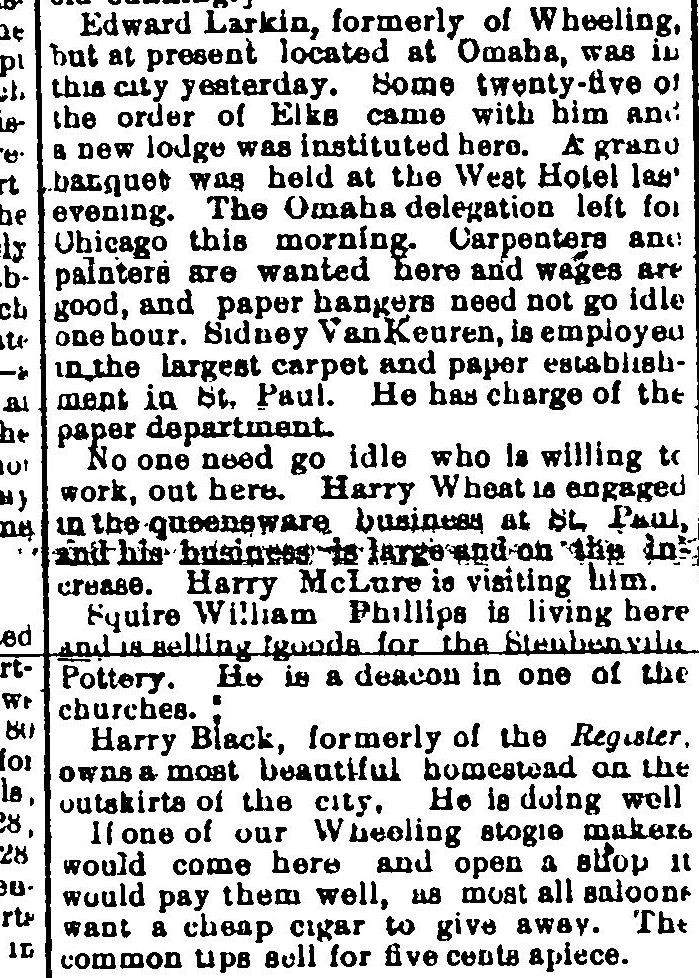Wheeling has always had a colorful cast of characters: local celebrities, eccentric businesspeople, infamous persons. They become household names and become part of the local lore. Like friendly ghosts, their exploits around town are conjured up as a way to imagine what Wheeling was like “back in the day.” By studying the trajectory of someone’s life, one can learn not just about the individual but the world they inhabited.
Enter T.T. Cockayne, a roving bandleader, occasional gossip, and devotee of the river…with a laugh so distinct it on one occasion had him thrown out of a concert.
A Musician and Machinist
Thomas Toliver Cockayne was born in Wheeling, Virginia in 1838. He was a cousin of the Cockaynes of Marshall county, who were distinctive in their own right; the family owned most of the land that is present-day Glen Dale. By the time West Virginia had emerged as a new state, Cockayne was well underway with his musical career.1 Despite registering for the draft,2 he was never called up and continued to play balls and cotillions around Wheeling.
Some of Cockayne’s earliest musical appearances are at Labor Union functions, where workers organized in support of the eight-hour workday.3,4 It wasn’t until the 1870s that he hit his stride, and the newspaper began covering his appearances with enthusiasm and appreciation deserving of a local celebrity. The majority of performances were located in and around Wheeling, but occasionally they would hop on a boat and travel the river south as far as Portland, Ohio.
Here is a map with points representing locations of his musical appearances. He played at private residences, halls, orchards, and fairgrounds. Most locations are approximate to the neighborhoods where they took place. Notice how most of the out-of-town points are on the river. It’s likely that Tommy and his band would arrive in style by boat, which at the time was the quickest and most reliable way to travel in the Ohio River Valley.5
He would occasionally visit his cousins in Marshall County. On one occasion, he played a reception at V.L.Cockayne’s home, Valley Farm. While Valley Farm no longer exists, the other family farm, the Cockayne Farmstead is still intact. It’s currently a historic site that regularly holds tours.
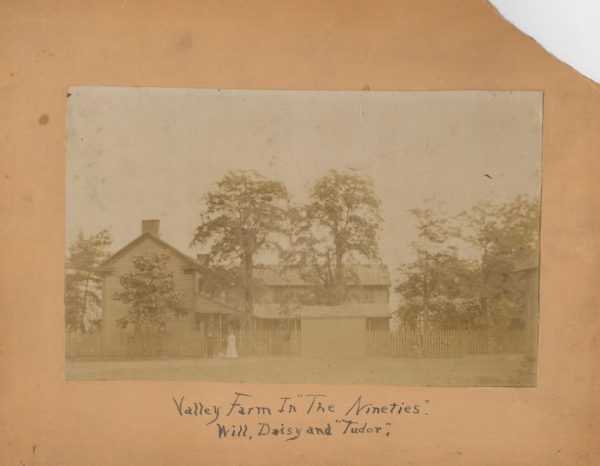
T.T. Cockayne’s Personal Life
Tommy Cockayne had six short years with his wife, Mary McCann. They were wed in January of 1868 and had three children: Grace Lanor, Mattie Herron, and William Henry. Their last child was born at the end of April 1874. By The first week of May, Mary McCann had passed away.
It wasn’t uncommon for widowers in this situation to send children away to female family members to be cared for. This is reflected in the 1880 census, which does not show the children in the same household as him. Instead, it looks like he moved in with his mother, who was already his neighbor on National Road.
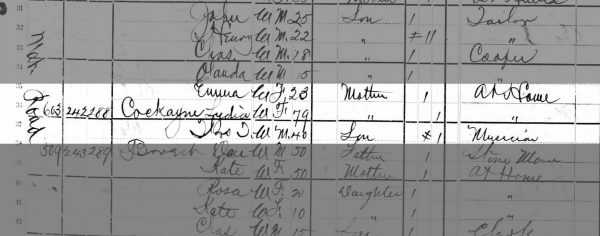
This census year also shows Tommy’s change in profession. In past forms, he had described himself as a machinist and engine builder, but by 1880 he identified primarily as a musician.
The Misadventures of T.T. Cockayne
Someone so notable and so well-traveled as Tommy is bound to have a few fun stories. The paper loved to write about his exploits, both professional and personal. As someone who spent a lot of time on the river, he was regarded as an expert on its conditions generally. Notice how his name is thrown in as a source – “he ought to know.”

And here, Tommy was able to stop certain fiery destruction when he noticed a fence was on fire.

Perhaps the most peculiar is the time that he was thrown out of a concert at the Academy of Music due to his “peculiar, loud, and hearty laugh.” Not one to suffer indignities, he went on to press charges against the proprietor.
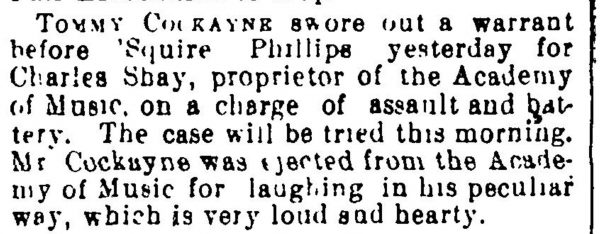
It’s not clear if someone called this into the newspaper to report it as news, or if Tommy did it himself. Other clippings mention how he kept the newspaper updated on his doings, and would occasionally stop by the offices to visit. On an 1844 trip to Minnesota, Tommy left his fiddle at the rail station in Steubenville.
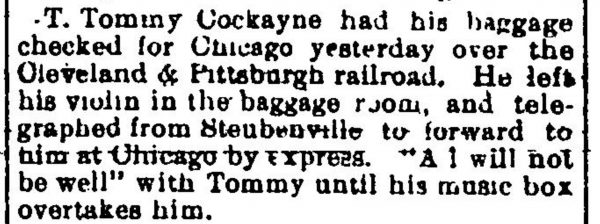
When he got to Minnesota, he posted a letter to Wheeling full of gossip and other newsy tidbits. Why would Wheeling readers care about the happenings in the midwest? Many residents of these midwestern towns were from Wheeling! He mentions residents that have started successful businesses and fraternal organizations. He also puts the word out that there is always work for carpenters, paperhangers, and plasters, indicating that these cities are growing rapidly and in need of adequate labor. He ends the letter by mentioning that there is a need in the midwestern markets for a stogie supplier, something Wheeling had an abundance of.
Parting Words
Unfortunately, T.T. Cockayne suffered a few health issues in the last years of his life. He passed away suddenly at the County Infirmary at age 55. His lengthy obituary mentioned little about his family or personal life, and instead focused on his adventures and personal attributes. While unconventional, it provides a detailed look at his career. From it, we learn that aside from his musical success, he did not read music and instead learned tunes by “ear.” In his “retirement” he traveled the river, making friends with the other navigators.
There was a time when T.T. Cockayne was one of the best known in Wheeling, and one of the most popular. All circles of society were open to him and his violin and his orchestra. He and his cotillion band were part and parcel of almost every ball, hop, or dance given not only in Wheeling, but throughout the surrounding country, on both sides of the river as well.
In his later days, “Tommy” took to the river, for which he always had a weak spot in his heart and in various capacities went up and down the Ohio, between Pittsburgh and Cincinnati, his merry laugh and his inevitable violin being everywhere welcome. Many men knew him like a brother, and many well recall him with a sigh.
Jovial to a fault, upon occasions; peculiar to a most unusual degree, he had the faculty of making and holdin friends in all walks of life, and his ear-splitting laugh and his “all is well” will be widewally recalled.
What a sendoff! It’s evident that although ol’ Tommy may have been less well known in his later years, he was certainly not forgotten by those who loved him. He was a winning combination of raw talent, hard work, and agreeability. It’s nice to know that like now, the Wheeling of the past valued these traits in their local legends.
• Kate Wietor is currently studying Architectural History and Historic Preservation at the University of Virginia in Charlottesville, Virginia. She spent one glorious year in Wheeling serving as the 2021-22 AmeriCorps member at Wheeling Heritage. Since moving back to Virginia, she’s still looking for an antique store that rivals Sibs.
References
1 “T.T. Cockayne Obituary” Wheeling Daily Register, December 6, 1893
2 U.S. Civil War Draft Registration Records, 1863-1865, digital image, ancestry.com for Thomas Toliver Cockayne in the first congressional district of West Virginia. June 1863
3 “Union Ball” Wheeling Daily Intelligencer, October 21, 1864
4 “Eight Hour labor a day’s work” Wheeling Daily Register, February 2, 1866.


